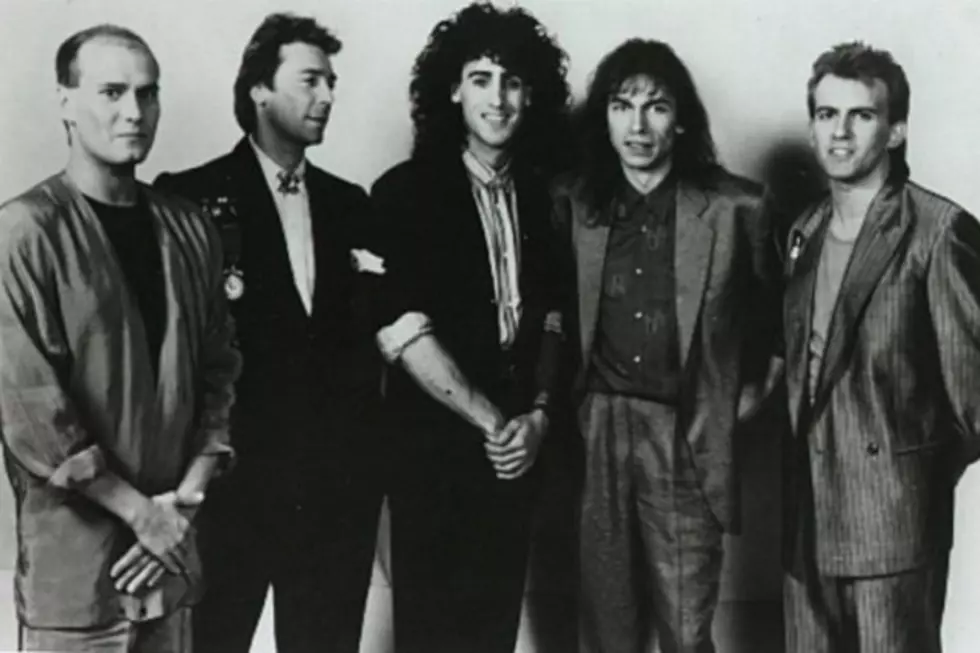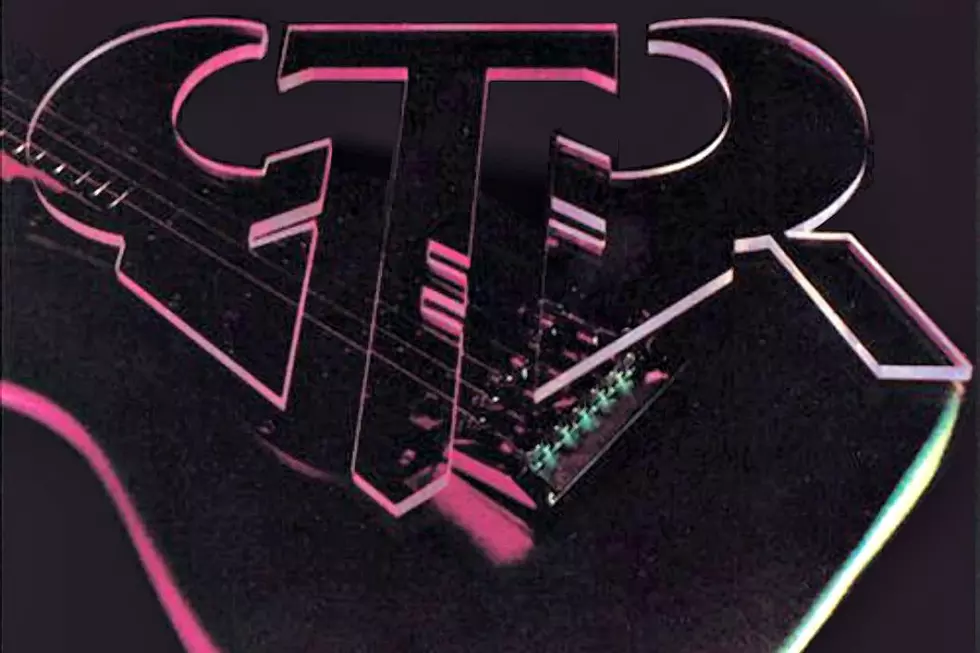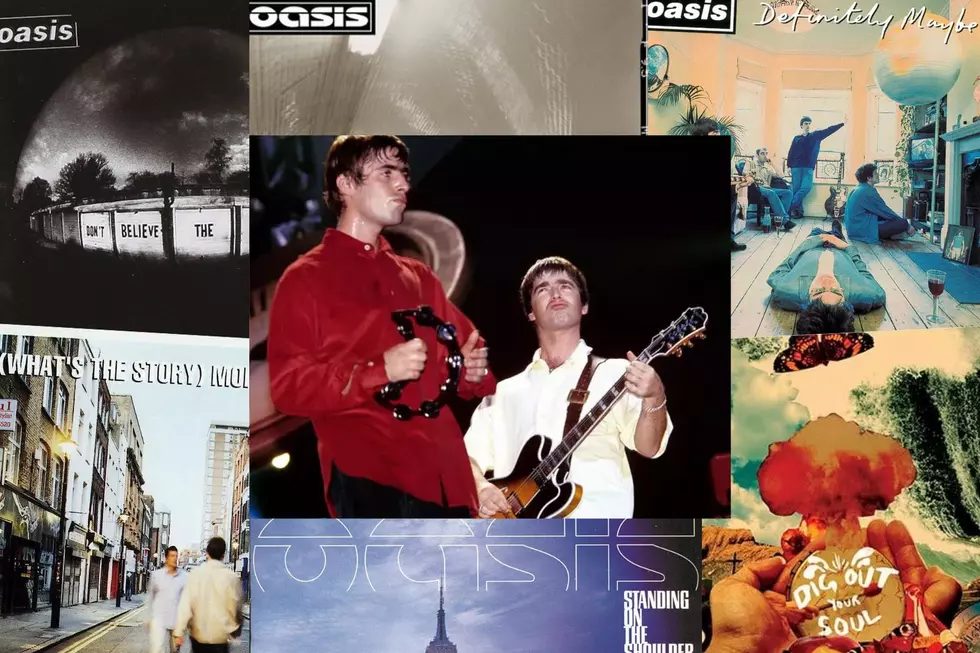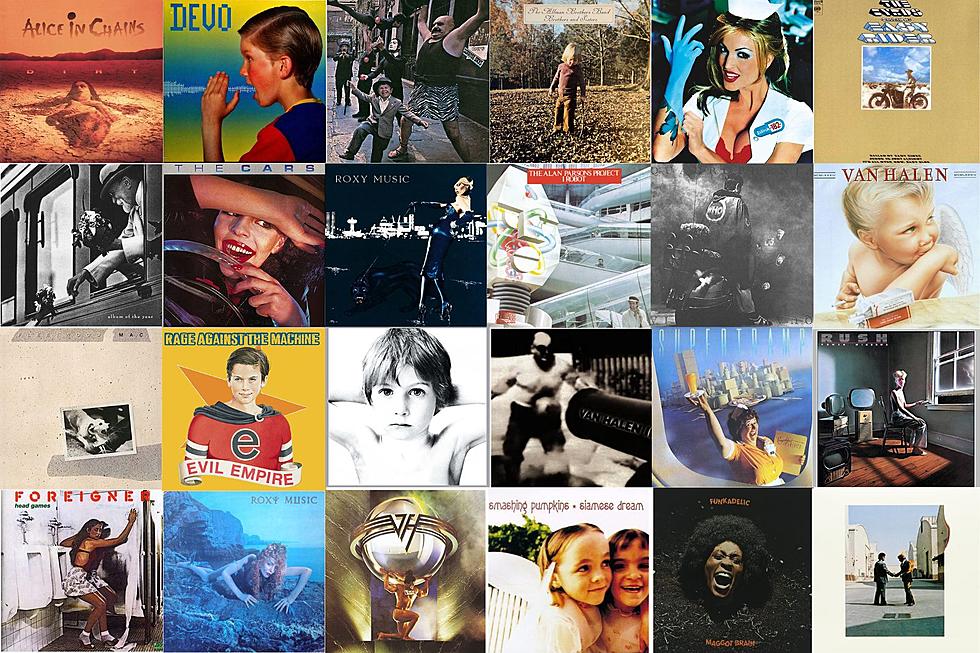
Musical Bed-Hopping: The History of GTR
In the mid-'80s, supergroups from the U.S. and U.K. alike reigned supreme. This coincided with the discovery of one of the most accepting audiences progressive rock had yet seen. Unfortunately, those two forces didn't play well together.
Rock is, by nature, filled will ego, but progressive rock tends to be filled with ego on an orchestral scale. Quite often the musicians involved fancy themselves as being more than the average rocker. They have classical and/or jazz training and see themselves as composers rather than showmen. Those tendencies regularly manifest themselves is a series of contentious, often incestuous, musical marriages.
The short-lived supergroup GTR is like the stereotypical fling when a few of these types are in the midst of trial separations. They are seldom seen as "trial" in the heat of conflict, and key members of the initial marriages are usually drawn back into the fold eventually. We'll get to their one album shortly. But first, here's the backstory.
No band is more complicated with its interchangeable parts than Yes. Toward the end of the '70s, with Jon Anderson and Rick Wakeman out, the keyboard and singer positions were suddenly open. The band brought in the Buggles: Trevor Horn (vocals) and Geoff Downes (keyboards). 'Drama,' the record created under this arrangement in 1980, is viewed retrospectively as a very good album and a reinvigorated effort, but that wasn't the case back in the day, when die-hard fans rejected the replacement of Anderson.
Horn stayed on as producer when the band reconvened a few years later for '90125,' scoring their biggest hit with 'Owner Of A Lonely Heart.' Meanwhile, guitarist Steve Howe and Downes had already moved on, citing the boilerplate "irreconcilable differences" to form Asia.
Watch 'Owner of a Lonely Heart'
If stability was the goal, Asia was not its best example. The initial lineup -- rounded out by drummer Carl Palmer (Emerson Lake & Palmer) and bassist John Wetton (King Crimson, Family, Wishbone Ash and Roxy Music). -- lasted for two entries, the eponymous debut and the follow-up, 'Alpha.'
Rarely had so many big names been corralled in one place and, naturally, supergroup friction ensued. Conflicting reports argue that Wetton was bounced out of the band on the heels of the second entry's sophomore slump. Wetton claims he walked of his own free will. Allegations of alcohol abuse also played into the severance. The band's big 'Asia In Asia' concert at the Budokan in Tokyo, Japan, on Dec. 6, 1983 was fronted by Greg Lake. After a time, Wetton came back but Howe left.
Compared to all these shenanigans, the lineup of Genesis was positively idyllic. Early on, guitarist Anthony Phillips left and Steve Hackett replaced him. Frontman Peter Gabriel quit for a solo career in 1975 and drummer Phil Collins moved up to the mic. Then, after two releases with this configuration ('A Trick Of The Tail' and 'Wind & Wuthering'), Hackett too went solo. As a trio, Genesis went on to greater fame and fortune, with guitarist Darryl Steurmer and drummer Chester Thompson filling in live.
Hackett's solo stuff leaned more upon his inclinations for the classical acoustic guitar sound than rock, and his audience from the late '70s through the early '80s consisted mostly of the fans that migrated with him from his Genesis years. With both of their former bands riding high on the charts, it made no small degree of sense for Howe and Hackett to join forces. The result was GTR.
Max Bacon (vocals), Phil Spalding (bass), and Jonathan Mover (drums) were added to the mix, and while all were eminently capable musicians (Mover was briefly a member of Marillion), none had the name-brand cache their guitarists enjoyed. And in a band called GTR, that clearly signaled where the balance of power resided. Further complicating matters, Howe's compatriot in songwriting in Yes as well as Asia, Geoff Downes, was onboard as a producer.
Watch 'When the Heart Rules the Mind'
The self-titled debut, released in July 1986, went gold based upon the strength of the opening track and hit single, 'When the Heart Rules the Mind.' That's where the configuring seems to run off the preconceived rails. Howe and Hackett are all over the song, as expected, but what ends up being the biggest hook of all on the track? Max Bacon's vocals, which fall somewhere between Dennis DeYoung and Tommy Shaw of Styx and Gil Moore of Triumph. His performance firmly grounds the song and steals the show over the instrumental fireworks implied by the band's name and its musicians' reputations. A second single, 'The Hunter,' stalled out at the bottom half of the Hot 100.
It didn't help that critics were harsh. Writing for Musician magazine, J.D. Considine penned what he considers the most famous critique of his career, consisting solely of, "GTR-SHT." What does it mean for a group that has the arrogance to call itself GTR to be so blatantly upstaged by the vocalist? And what does it mean to be flamed in a review that could be a vanity license plate?
With two captains at the helm and no discernible sense of democracy, the center could not hold. GTR broke up in 1987, with Hackett, who has has said in retrospect that GTR was a mistake, going back to his solo efforts. In 2012, the musical key party went full circle when he worked with another Yes-man, Chris Squire, on the unfortunately titled Squackett project. He's returned to the Genesis fold for the recently released group-and-solo retrospective, 'R-Kive' and the upcoming documentary, 'Sum of the Parts.'
Howe, after runs with Mandy Meyer, Pat Thrall and Al Pitrelli, would wind back with Asia briefly for the first of second lead singer John Payne's efforts, 'Aqua.' There was also the 'Anderson Bruford Wakeman Howe' project which was absorbed into the Yes 'Union' stew. Howe would once again rejoin Yes as the primary guitarist, and would be a part of the "classic lineup" reunion of Asia in 2006, lasting until 2013.
Of the other GTR members, Jonathan Mover would go on to work with Joe Satriani's band. Phil Spalding provided bass for a number of acts, most notably Elton John for the soundtrack to 'The Lion King.' Max Bacon, who wound up being the most indelible part of the GTR sound, worked with Mike Oldfield ('Tubular Bells') and in 1999 reconvened with Howe for his 'Portraits of Bob Dylan' solo effort.
But prior to GTR's final curtain, a series of demos and roughs were recorded for a potential second disc. The vocals were uniformly split between Bacon and Robert Berry, who would later become the singer for the short-lived Keith Emerson and Carl Palmer reunion project 3. But that is an entirely separate tale of musical bed-hopping, best left for another day.
More From Ultimate Classic Rock









